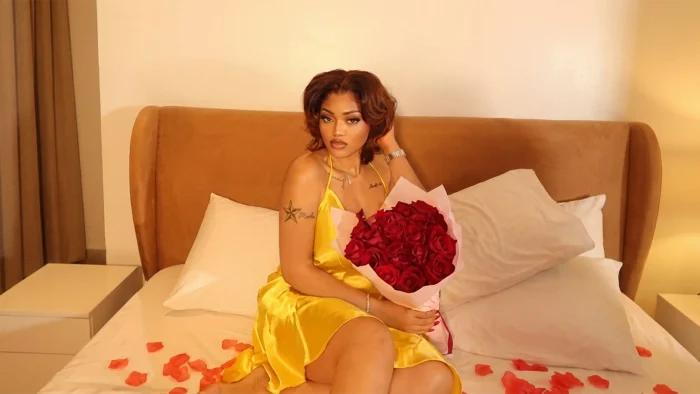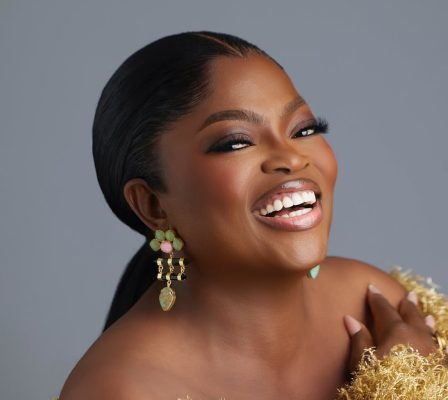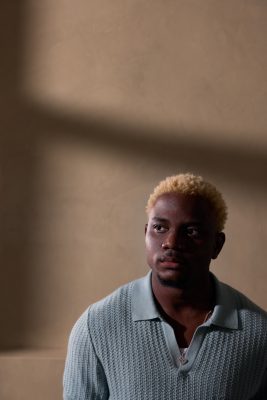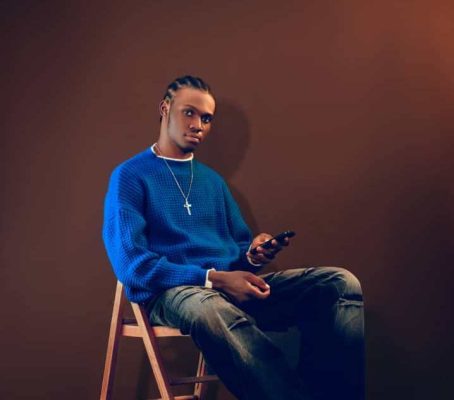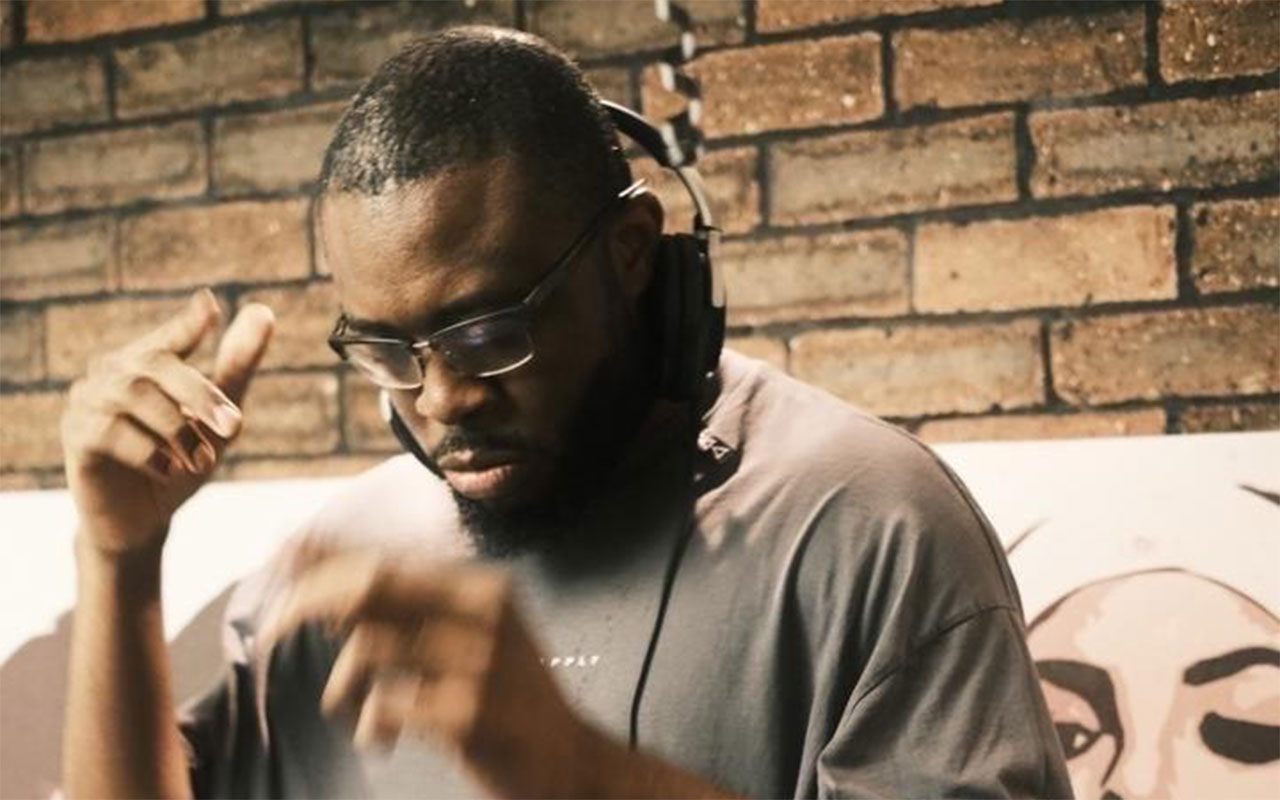 Across Afrobeats’ ever-expanding community, there are a plethora of unsung heroes. One of such noteworthy mavericks is the acclaimed record producer, composer and House DJ, Bigfoot. From the pulsating tempo of Hip Hop to the moody ballads of RnB, Bigfoot has left his imprint across myriad Afrobeats classics for nearly two decades. The musician, who is a financial expert by day and musical genius by night, is one of the iconic maestros of soundtracking Afrobeats’ sonic evolution.
Across Afrobeats’ ever-expanding community, there are a plethora of unsung heroes. One of such noteworthy mavericks is the acclaimed record producer, composer and House DJ, Bigfoot. From the pulsating tempo of Hip Hop to the moody ballads of RnB, Bigfoot has left his imprint across myriad Afrobeats classics for nearly two decades. The musician, who is a financial expert by day and musical genius by night, is one of the iconic maestros of soundtracking Afrobeats’ sonic evolution.
Born Ezenwa Ogbonna, Bigfoot’s alluring musicianship has come up on mainstream airwaves with a portfolio including, producing over 250 backing tracks for the first and second editions of the MTN Project Fame West Africa, working as a mixing engineer for Mavin Records, solo producing Brymo’s acclaimed Harmattan and Winter album, mixing and mastering Cavemen’s debut album, Roots, as well as producing hit singles like Odumodublvck’s Shoot and Go Home, Greatman Takit’s In Your Arms, Illbliss’ Nkali, Moelogo’s Where I’m From, among others.
[ad]
A seasoned artiste and repertoire expert, Bigfoot has also helped in developing the musicianship of several indie acts including Deborah Prest, PholaPreye, Monseeka, among others. In a sit-down with Guardian Music, he takes us back to his come-up journey, learning the ropes, creating timeless music, as well as his vision to redefine Afrobeats’ soundscape one record at a time.
You started nearly 20 years ago. What made you enter the music scene?
IT all started in school really. It was in 2003 when I was still schooling in the University of Benin. For me, that was when my professional journey started; before then, I was just pretty much relaxed and recording. In 2003, I kind of had my first placement; somebody actually was willing to make a payment for my work and that is where it all started from for me. There were simpler tools then. It was Fruity Loops Studio 1.5 – I think it is at version 21 now. I also used a lot of Mickey sounds from the keyboard. That was what I used then in 2003, and I sold the music for N500.
How did you learn how to produce music?
I learned music as a kid. When I was six, I had a piano teacher. But I learnt music production from a friend in Okigwe called Chinaza. He taught me how to use software called Cakewalk. I never really liked to use Cakewalk, but I kind of understood what it was all about. So, when I got Fruity Loops, it was easy sort of because the basics were set for me.
[ad]
When did you actually decide to do music full time?
I think it was also while I was in school that I decided that I was going to go into this. I can’t even say I have done music production full time in my entire life; it has always been that with something else. I’m a full time music producer, and at the same time, I’m a full time accountant. Both of them have always been side-by-side for me in the last 15 to 17 years or so. However, I did a placement in 2005 with an artiste called Sanchez, titled, ‘Pick it up’. It was actually an instrumental I made for a friend back then in school, but Sanchez wanted it for a single. Back then I was doing music for the fun of it, but he wanted to record it as a song, shoot a music video, and take it to the radio and all of that. I was excited and I sold the beat to him and made something else for my friend back then. I think that was the turning point in my life. The driving force for me has always been the excitement in making something new. It might sound crazy, but it has been the driving force for me all the while. Till today, I like working with new minds. I still work with the veterans, but I like new artistes because I still get that excitement of understanding what the trending sound is, and knowing what’s new and creating something with it. It is the excitement that keeps me going.
What are some of your most memorable records?
I would say Nosa’s Always pray for you was one of the sentimental records that I worked on. It is sentimental because I met Nosa in school and he actually played that record for me back in 2005 or 2006 as I was entering my final year. Back then, it was not really done. So, he had to play more than what he had worked on. I actually fell in love with the record, and that was also the first gospel record I worked on – since then, I have worked on a few gospel records. That song was not really gospeling in the sense that it was gospel, but it was such an inspirational record. It was a song that was moving for me when I heard it for the first time. It was one of those special records and it was the first time I was working on a record that I liked immediately and it was special. To pick a second song would be hard as there are a lot of records to pick and they are special to me for different reasons. But Illbliss’s first album stands out for me. When I worked on Illbliss’s catalog, I did a lot of production work for his very first album. And it was profound for me, because it had not been long since he was back from the UK and wanted to start his music career. And this was his first album, and he trusted a producer who had just come to Lagos at the time and was only just starting. But he kind of found the chemistry that we still have till today. It was the first full length album I kind of worked on. For me, every project is special, and there are a lot of projects to pick from even over the last year. Even among the next set of records that are coming out, I have a very special record with Moelogo that will be out soon. It is very special for me also because ever since I heard Moelogo, I always wanted to work with him and he kind of sat down in the studio and talked a lot about what he will be and where we want to go next. And it was a result of that discussion that that song was born. It was similar to how I did Brymo’s records. I find records like that very special to me because we kind of just talk about our lives, and he wrote a record based on that discussion. And it holds a lot of meaning for me; you know when we release something from personal experiences. I have a lot of records I have worked on that are very special.
[ad]
You have worked with musicians like Brymo and even Odumodublvck, creating a wide range. What is your typical creative process?
I’m drawn to work with artists whose personalities show in their music, who have very strong personalities and strong voices. I also love working with great songwriters; most of the deepest projects I have worked on are mostly songwriters who write from personal spaces whether it is with Odumudublvck, Brymo, Falana, or Tomi Thomas. I’m really drawn to work with artistes that have strong stories to tell, and are very entertaining or skilled. As far as the process goes, I kind of create a mood-board for most of the work that I’m meant to do. I have a mental picture of what I try to do, and what I plan to create. And it changes with time as you can imagine. There are certain elements of or certain instruments of music that overtime I was always incorporating in the music I’m creating.
But generally, it’s a mood-board and I listen to them almost all the time. Right now, I’m listening to a lot of afro music and I want to understand more patterns for the music. I’m trying to know what’s new and what is green out there.
What are your thoughts on Afrobeats’ current successes?
I think the music scene is great right now. I like the influx of foreign and local interest. It is making the industry players sit up as well as the artistes. I also like that artistes are realising that not everything is talent. A lot has to do with networking and building a community. I feel like the music scene is progressing. The music itself is also developing, although not as quickly as I would have loved it, but it’s still progress.
[ad]
Something is mainstream only if it is popular. With musicians that we look upon as alternative, I think that they need to keep building a strong community around their music and putting in a lot of that work into nourishing their community. The Cavemen did it from scratch and now they are pretty much household names. I believe that community building is the way. As alternative music keeps getting popular, people would start looking at them through mainstream lenses.
Who are some contemporary voices that you look forward to working with?
I have worked with a few contemporary voices like PholaPreye, Kold AF, Kotrell, Aisosa, and even more. I love working with contemporary artistes. I look forward to working with Winny Adanu, Mannywellz, Rukmani, Shaeuniverse, Lojay, and a few other voices I haven’t worked with yet: From Nigeria all the way to Kenya, Uganda and South Africa. I am always on the lookout for emerging talent and contemporary voices and I look forward to working on a lot of those. Currently, I have new music coming out next year with some powerful contemporary voices.
How are you navigating life as a DJ?
As a DJ, I am navigating the scene by treating it very professionally. I like to curate sounds that express my feelings, and also rock the dance floor. I am playing original and reimaginings of music; I infuse my own production into my set-list. It has been incredible navigating the scene. I am focused on building a series of curated exclusive DJ sets to play at unorthodox spaces where I can showcase my style.
What is next for you?
I have a few projects coming out next year. I am putting together a body of work, and also a few collaboration projects. I am working on a project with a few incredible artistes. I also am going to be doing a lot of DJing, sound engineering work and a lot of movie soundtracks.
[ad]


